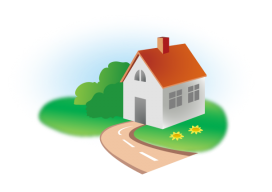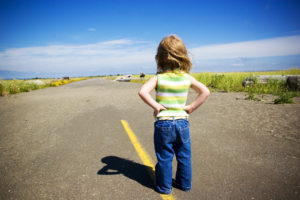
Parent & Family Support
Coping and Self-Care
Coping skills and learning to take care of yourself are key to helping your child and in turn your family. The healthier you are both physically and emotionally, the better equipped you will be to provide a positive, safe and enriching environment for your children and family.

Patricia McGill Smith speaks about raising her child with a disability in the article, “You are Not Alone”. She offers her tips on how to cope and live with the emotions of this parenting experience. “Ud. No Esta Solo” en espanol.
The Unplanned Journey
No parent wants his or her child to be sick, disabled, or harmed in any way. It is not an experience anyone expects to have; rather, it is a journey that is unplanned. Carole Brown, Samara Goodman, and Lisa Küpper attempt to describe what the future may hold for your family in the following article. The Unplanned Journey
Grief
There is a path that all parents of children with disabilities travel from the time of diagnosis to acceptance of our child’s disability and the new life we now have. Understanding this process and accepting it can help us as we work through the loss of our dreams of “perfect children”.
Compassionate Friends-Loss of a Child with Special Needs Facebook Group
Take Care of Yourself
The emotional and physical health of parents has an effect on the family. Parents are the heart of the family and are most often the ones who deal with the issues of the child with a disability, in addition to working, paying bills, shopping, cleaning and taking care of the needs of other children. All of this can be overwhelming and can take a toll on your health. Take some time to take care of yourself by following these simple tips.
- Accept help. Don’t try to do everything yourself. When someone offers to help you out, gladly accept it.
- Don’t give in to guilt. Things don’t have to be perfect. Do the best you can.
- Get informed. Spend time reading about some of the issues you are facing. Go to a training or watch a webinar.
- Get support from other parents. Support can come in many ways – one-on-one, in a group, or on the internet. Call Parent to Parent of Georgia at 1-800-229-2038 to find the support you need.
- Don’t give in to guilt. Things don’t have to be perfect. Do the best you can.
- Stay connected. Keep in touch with family and friends. Make plans to get out of the house and be social.
- Commit to staying healthy. Make sure you get enough sleep, eat healthy regular meals and get enough exercise. See your doctor on a regular basis.
Take a Yoga break with Candace
Postpartum Depression
If you are experiencing unusual depression during pregnancy or after the birth of your child, you can speak with someone who understands and can offer help. Georgia Postpartum Support